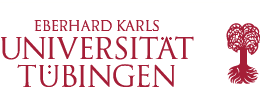Information processing in cognitive systems & statistical methods
Winter term 2025/26
Guests are welcome! Feel free to stop by for single talks.
Schedule
- Fr 17.10.2025 14:15-15:45 C118a Sand 14
- Planning session
- Fr 24.10.2025 14:15-15:45 C118a Sand 14
- Internal meeting (Poster cross-rehearsal)
- Fr 31.10.2025 15:15-16:45 C118a Sand 14 (postponed by 1 hour)
- Volker Franz: Einstein, Popper, Mayo: How can scientific theories be severely tested?
- Fr 07.11.2025 14:15-15:45 C118a Sand 14
- [postponed]
- Sa 15.11.2025 Special event: Sonnenenergie & KI (note different day & location!)
- This is a special event where Florian Ebmeier presents his work (besides other things).
For details, click here to view the flyer.
(note to BSc Cognitive Science students: You are happily invited! Note, however, that the event cannot be counted as talk for the Forschungskolloquium Kognitionswissenschaft).
- This is a special event where Florian Ebmeier presents his work (besides other things).
- Fr 21.11.2025 14:15-15:45 C118a Sand 14
- Sascha Meyen (Research Talk): Accumulated evidence as a behavioral performance measure
- Fr 28.11.2025 13:30-17:00 MvL1 (note different time & location!)
- PhD-day of computer science department
- Tue 02.12.2025 14:15-15:45 A302 (note different day & location!)
- Ida Knecht (Planning Talk for BSc thesis): Contrasting measures of metacognitive ability
-
Frieder Göppert (Research Talk): Does Bayesian optional stopping always increase error rates?
- Fr 12.12.2025 14:15-15:45 C118a Sand 14
- Chang Liu (Guest Talk, Chang Liu work with Prof. Yulia Oganian, https://hvclab.github.io/team/): Uncertainty in audio-visual object recognition
- Fr 09.01.2026 14:15-15:45 C118a Sand 14
Florian Ebmeier (Research Talk): postponed- Hamit Basgol (Journal Club): Modirshanechi, A., Becker, S., Brea, J., & Gerstner, W. (2023). Surprise and novelty in the brain. Current Opinion in Neurobiology, 82, 102758. DOI
- Fr 16.01.2026 14:15-15:45 C118a Sand 14
- Hamit Basgol (Research Talk): Pupil responses as windows into sequence processing: how much could they reveal and why it matters?
- Frieder Göppert (Research Talk): Does Bayesian optional stopping always increase error rates?
- Fr 23.01.2026 14:15-15:45 C118a Sand 14
- Sascha Meyen (Journal Club): Grünwald, P. (2024). Beyond Neyman–Pearson: E-values enable hypothesis testing with a data-driven alpha. Proceedings of the National Academy of Sciences, 121(39). https://doi.org/10.1073/pnas.2302098121
- Frieder Göppert (Journal Club): Grünwald, P., de Heide, R., & Koolen, W. (2024). Safe testing. Journal of the Royal Statistical Society Series B: Statistical Methodology, 86(5), 1091-1128. DOI
- Fr 30.01.2026 14:15-15:45 C118a Sand 14
- Ida Knecht (Results Talk for BSc thesis): Contrasting measures of metacognitive ability
- Kriti Bhatia (Research Talk): Size discrimination in perception and action
- Fr 06.02.2026 14:15-15:45 C118a Sand 14
- Florian Ebmeier (Research Talk): From fault detection towards foundation models in solar thermal systems.
- Kriti Bhatia (Journal Club): Cesanek, E., & Domini, F. (2018). Transfer of adaptation reveals shared mechanism in grasping and manual estimation. Neuropsychologia, 117, 271-277. DOI
- Your talk:
-
When preparing a talk for our colloquium, please:
- Send a PDF-file of an (almost) final version of your talk by email to V. Franz a day before the talk (latest: 2h before the talk). Details for the PDF-file: 1 slide per page. Make sure that you do NOT create separate pages for each step of animations. Give this PDF-file a sensible name. E.g., colloq-(your-last-name)-(date).pdf. If you made major changes to the talk after sending it to V. Franz, then please also send the final version after your talk.
- Practice your talk!
- Adhere to the time-limits during your talk. Practice that!
- Present data as graphs (supplemented but not supplanted by numerical statistics). Often these graphs will simply be means with error-bars showing the standard error of the mean.
- Provide your name, the date of your talk, your institution (often this is simply: University of Tübingen), etc. at the title-slide.
- Practice your talk!
- Finally (just in case, I forgot to mention): Practice your talk! Send a PDF before the talk!
- Journal club:
- 5-10 min presentation + 25-20 min discussion (in total app. 30 min; please make sure you adhere to these time-limits!). In the journal club a member of our group present an influential, scientific article relevant to our current work. Articles should typically be recent (e.g., 3-5 years), but could also be older if of special interest. Articles will be available at our file-server (with the path being e.g., EC-STORE/literature/articles/journal-club-WS2025), please ask a member of our group if you do not know how to access those. Please make sure that a meaningful reference (containing title, author, year, journal) is presented at this web-page (either by you or by sending an email to V. Franz) and that the full APA-reference in the correct APA-formatting is present on the title-slide of your presentation (besides the typical things that should always be on a title slide: your name, the date of your talk, your institution (often this is simply: University of Tübingen) .

